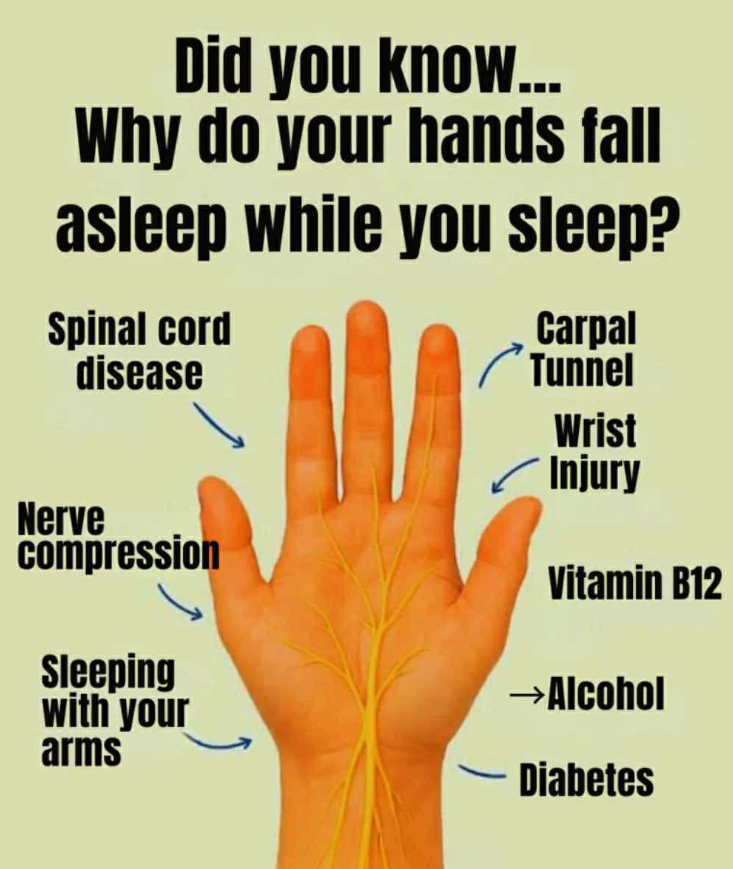A herniated disc in the neck might compress nerves running to the arms.
If tingling occurs with neck or shoulder pain, imaging or a specialist evaluation may be needed.
6. Poor Sleep Posture
The simplest cause is how you sleep — lying on your stomach or putting your arm under a pillow can compress nerves.
Sleeping on your back with good neck support is better.
7. Multiple Sclerosis
Although less common, MS can cause numbness with fatigue, balance problems, or vision changes.
Persistent numbness with other symptoms should be checked out.

8. Dehydration
Not drinking enough water can trigger muscle cramps and nerve irritation. Stay hydrated, especially if you consume caffeine or alcohol.
9. Pregnancy
Swelling during pregnancy may compress nerves, causing tingling at night. Elevating arms and using splints can help.
10. Autoimmune or Neurological Conditions
Disorders like lupus or rheumatoid arthritis can cause numbness, especially with joint pain or fatigue.
Prevention Tips
- Sleep on your back with your arms comfortably at your sides
- Avoid putting your arms under your head or pillow
- Use pillows that align the neck and spine
- Stretch wrists and shoulders before bed
- Take breaks from repetitive hand activities
- Maintain hydration and a vitamin-rich diet
When to See a Doctor

If your hands only occasionally fall asleep, it’s usually harmless. But if numbness:
- Occurs every night
- Wakes you frequently
- Is linked to weakness, balance problems, or pain
- Doesn’t improve with changing positions
It’s time to see a doctor. Listen to your body’s signals; sometimes numbness can mean more than just sleeping the wrong way.
